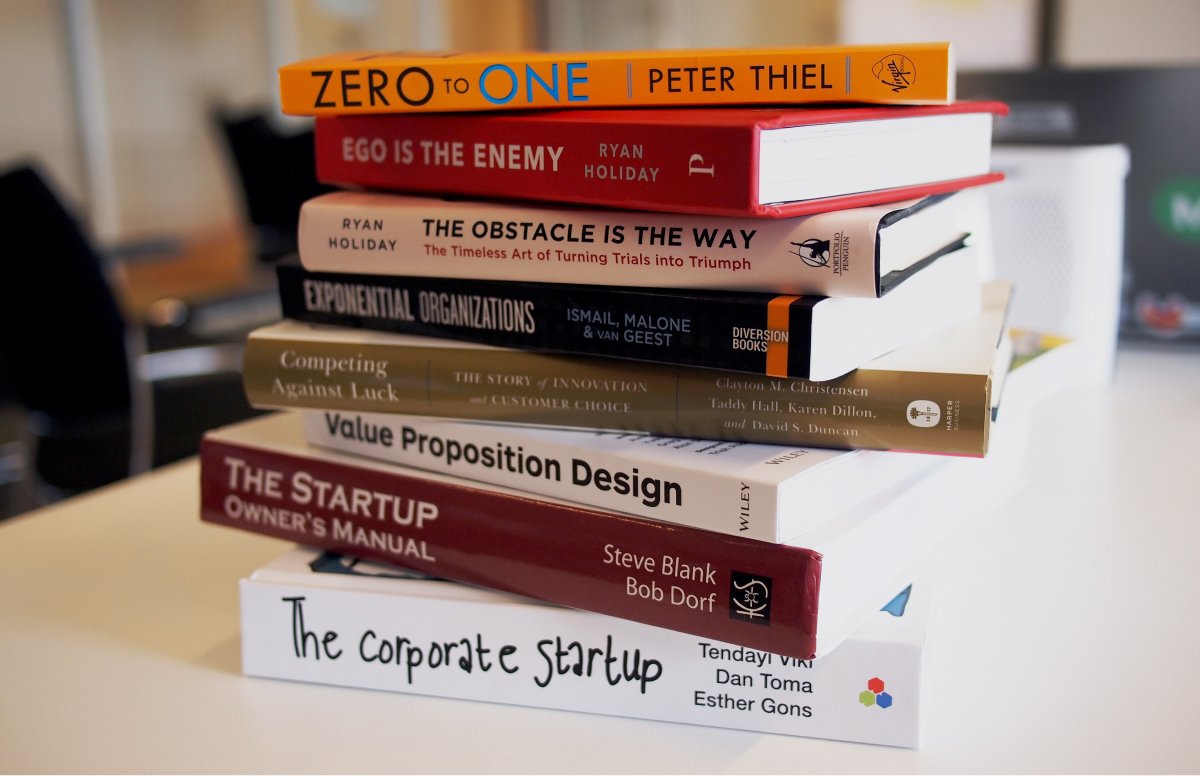Successful entrepreneurs are often some of the most inspiring people you can meet. They were able to take an idea, shape it into something marketable (and useful), and bring it to life for the world to see. It’s an incredible feat to start your own business in the first place, but to have it be successful is another matter entirely. It takes perseverance, dedication, and probably some element of luck.
While there’s certainly a lot of variation in the personalities of entrepreneurs, they typically share similar traits: passion, vision, optimism, and curiosity, just to name a few. However, sometimes these positive traits can actually be detrimental — they can be a little too optimistic, work so many hours that they miss out on their personal lives, or slow their business down because they’re letting perfectionism take over.
We talked to a bunch of successful entrepreneurs to see what positive (but also negative) traits they possessed and asked how they deal with them. Here’s what they had to say.
They’re Typically Optimistic
Like professional athletes, entrepreneurs tend to be optimistic. It’s difficult to think of optimism as being a “bad” thing, but sometimes our desire to look at what could be can cloud our view of reality.

Brad Nierenberg, CEO of RedPeg Marketing, (recently named one of Fast Company’s World’s Most Innovative Companies), is a naturally optimistic person. Still, he also acknowledges that it’s this typically “good” personality trait that nearly cost him his company.
“One of my biggest mistakes was being overly optimistic, one year in particular. We had grown almost 100 percent through a single client, and I assumed that growth would only continue the following year. So, we staffed up accordingly, without a contract in hand. That put us in a tremendous financial bind when the business didn’t grow according to my optimistic plans. And it was one of the biggest challenges I’ve faced because we could have lost everything.”
Nierenberg has since learned his lesson. He didn’t let it squash his optimism, but he looks at business decisions differently. “From that experience, I learned to get much more focused on understanding the basics of our numbers. I now know I can be positive and optimistic, but I can’t let optimism drive business decisions.”
Think of this as being cautiously optimistic. Have the mindset that your business will continue to expand and mature, but make big decisions based upon a more neutral stance. We’re not saying you should be negative, per se, but if you’re trying to decide whether or not to invest a substantial amount of money in a new employee, program, or product, make sure you have a steady stream of income to justify it.
They’re Almost All Perfectionists
Perfectionism is a very common trait among entrepreneurs, and it’s difficult to fault them for it. If you put yourself in their shoes, you can see why they’re protective of their company — it’s their baby. They want to nurture it and help it grow. Perfectionism drives them to improve their product, service, and the company overall continually. It’s a major reason they succeed in and of itself. However, it’s also the very reason some companies fail.
Abhi Lokesh calls it “extreme attention to detail.” Lokesh is the co-founder and CEO of Fracture, a Florida-based company that prints photos directly onto glass. “Perfectionism is a double-edged sword as a business owner. On the one hand, such meticulousness is incredibly helpful in establishing the company, process, and brand standards. On the other hand, it can cause severe ‘paralysis-by-analysis’ and also turn business owners into overbearing, untrusting micromanagers.”

For Lokesh, perfectionism has helped him learn every aspect of his company, which has been key for team building. “By doing so, I earn legitimacy and credibility amongst my team because they know I’ve taken the time to study, do my research, ask questions, and familiarize myself with their projects. I know enough to be conversationally fluent and to appreciate the challenges of what my direct reports are going through. Being able to empathize with my team on a deeper level helps me build bonds with them.”
When you’re so emotionally and financially invested in a company, it’s very easy to take over every little part of it — to want a hand in every single aspect, and that’s been a challenge for Lokesh, who wants to be informed of his company’s “many moving parts,” but doesn’t want to micromanage.
“However, perfectionism gets dangerous when I overreach and question why they’re doing things a certain way. I have to constantly remind myself that I hired my team specifically because they’re experts in their domains, and I have to let go and trust them. It helps to remind myself that I don’t scale and that in order for Fracture to be successful, our teams need to find their footing and grow far beyond me, and ultimately I’ll be along for the ride.”
Laura Spawn, CEO and co-founder of Virtual Vocations, has had similar experiences with her perfectionism. She describes it as being a “tough habit to beat.” Like Lokesh (and probably most other entrepreneurs), she wanted to be involved in every aspect of the business at the beginning but has learned that in practice, it’s simply unsustainable.
“I had trouble delegating tasks to others — I felt like it was just easier to do it my way than to explain to someone else how I wanted it done. Doing everything myself had its advantages: I was deeply involved in the company’s day-to-day operations, and I knew things were being done the right way. But I soon found that this habit of perfectionism wasn’t sustainable; I was feeling burned out, I wasn’t getting enough sleep, and I needed to make a change.”

Spawn learned that she had to let go of some control if she wanted her business to grow and thrive. “As a business owner, you don’t have the energy or the brainpower to be an expert in everything related to running your company—you need to bring in other people who have expertise in other areas. For me, accepting that meant acknowledging that tasks could be completed in a quality manner by someone other than myself, even if it takes some time to train that person on exactly what I need.”
Entrepreneurs are Driven High Achievers
High achievers often want to push until they reach their goal — and that’s not a bad thing! It’s inspiring to watch an entrepreneur push themselves to achieve their dreams. Seeing people find success makes us want to do the same. It makes us believe our dreams can come true if we just work hard enough.
Being driven is crucial for entrepreneurs. It’s imperative that they aim high. No successful entrepreneur has ever just wanted to be “okay” at something. Steve Jobs wasn’t trying to create a decent computer. Alice H. Parker wasn’t trying to invent a bad way to heat homes in the early 1900s. Both of them were looking for the best way to solve a problem using the best technology available at the time.
Overachievement is not a negative trait to possess. It’s quite inspiring on its own, but the results of constantly striving toward a big, over-the-top goal can be challenging.
The Illusive Work/Life Balance
When you own a business, you don’t work a 9:00 to 5:00 job. Before your company even opens, you’re kissing the 40-hour workweek goodbye, and most entrepreneurs know that will be the case. Successful entrepreneurs know that the grind is hard and long — at least at the beginning when you’re still building.

After steady revenue is established and the ball is rolling on its own, you can sometimes trim back your hours. Perhaps something closer to 45 or 50. This is simply how people with a lot of drive function — they don’t want to fail, so they’ll work whatever hours it takes to succeed.
The trouble with working such long hours is that it leaves you with essentially no time for the rest of your life — family, friends, exercise, relaxation, even sleep all take a back seat to your business. This is the negative consequence of having such intense focus and drive.
“For better or worse, I see my life and business as inseparable,” says CEO and co-founder of Cover, Karn Saroya. “I don’t believe in ‘work-life balance,’ and instead, I subscribe to the belief that at any given point in time, one thing in your life may take precedence over the other. For me –– right now –– that’s my business.”
For Saroya, it’s a better idea to lean into this philosophy, than to run from it in hopes of fighting the inevitable. “One of my co-founders is also my fiancé, so that helps since we have the same schedule and priorities.”
When we asked if he’d suffered as a result of the personality traits associated with that fiery entrepreneurial spirit, he basically said it was a non-issue. “I don’t think I’ve experienced any negative fallout from my possessing these traits; if anything, the fact that myself and my co-founders identify with some of them has only helped us grow fast and more efficiently.”
That Take-Charge Attitude
High achievers sometimes feel pressure to take on more than they can handle. They like the feeling of accomplishment, so it’s easy to tack another thing onto their to-do list — it’s another thing they can check off.
The trouble with this take-charge attitude is that it can slip into the “If you want something done right, you have to do it yourself” mindset. It’s easy to see how entrepreneurs can fall into this way of thinking, especially considering that they’ve probably started their business because they wanted to solve a problem in the first place.
This can easily lead to micromanagement and lack of delegation, which will not only end up costing you time but will probably end up costing you in human capital later if people quit because they don’t have any autonomy.

Shyam Krishna Iyer founded SKI Charities, which provides capital to the “economically excluded” — typically female entrepreneurs in developing parts of the world (currently in Mutare, Zimbabwe, and Lebu, Chile). “When I kicked off SKI Charities, I was met with much skepticism from both donors and local contacts. I decided that a high level of oversight and control would be necessary, and while this allowed the project to commence, I quickly learned this was not sustainable.”
Iyer describes himself as a Type-A personality, so letting go of some control and allowing his employees to have more autonomy was, in his words, “incredibly difficult.” However, in order to expand their work to new locations, he realized he had to figure it out. “I could not shift my life to our locations in Zimbabwe or Chile. And with so many staff members and beneficiaries depending on me to get this balance right, I had no choice but to embrace this type of management.”
As it turns out, this shift in management is working pretty well for SKI Charities and their beneficiaries. Iyer says they’ve “successfully empowered hundreds of families towards success and independence.”
Spoiler Alert: Many Entrepreneurs are Workaholics
Workaholism oftentimes goes hand-in-hand with perfectionism and high achievement. It’s easy to hunker down and push hard to get a business off the ground. For many entrepreneurs, this is second nature. They have a goal, so they work as many hours as it takes to make it happen. In many ways, this is very respectable, but it certainly has its downsides — loneliness, for example.
Lauren McManus is the co-founder of Create and Go, a company that helps people learn how to create a profitable business through blogging. McManus works remotely, meaning that she doesn’t keep a traditional office in a building somewhere. She can work from anywhere — home, a coffee shop, the beach, or wherever else she can find internet access. She loves this lifestyle but admits that loneliness is one of the negative realities of it.
“[Loneliness] is especially a problem for location independent and online business owners like myself. It can be wonderful to work from home and have no distractions on your biggest projects. However, the flip side of that is not having anyone to share your biggest wins with in person.”
McManus alludes to another important point: many entrepreneurs are just doing what they love, and that often manifests itself into intense focus and long hours. “I love the rush of sitting at my computer and banging out all the work in record time without anyone to sway my attention from my to-do list.”

Entrepreneurs are sometimes chastised for their workaholism, but people may not realize that working so much is a struggle for them sometimes. McManus continues, “After the work is completed, I crave the feeling of belonging that can only come from hanging out in person with other people.”
Turning the Negative into a Positive
Many people who are not entrepreneurs possess these same traits without experiencing very much backlash from them. When you’re not running a business — when people aren’t depending on you for their paycheck — it doesn’t have nearly the same ripple effect. What you don’t want is for your actions to impact the livelihoods of your employees negatively.
Keeping these traits from taking over your life and your company can be the difference between your business (and you) being successful and being a complete failure. Entrepreneurs need to practice self-awareness so they can see when their positive traits are leaning toward the negative, and then they need to take action when the time comes.
If you’re worried that some of these personality traits are negatively impacting your employees, don’t get discouraged. There are plenty of ways to course correct. Meditation, self-reflection through journaling, and having close advisors can help business owners take stock of how their personality traits are affecting their business.
Take your entrepreneurial spirit, can-do attitude, and optimism and put it toward improving yourself. Your business will follow suit.
What negative traits do you have to mitigate in your entrepreneurial life? Let us know by tweeting us @Protoio!






